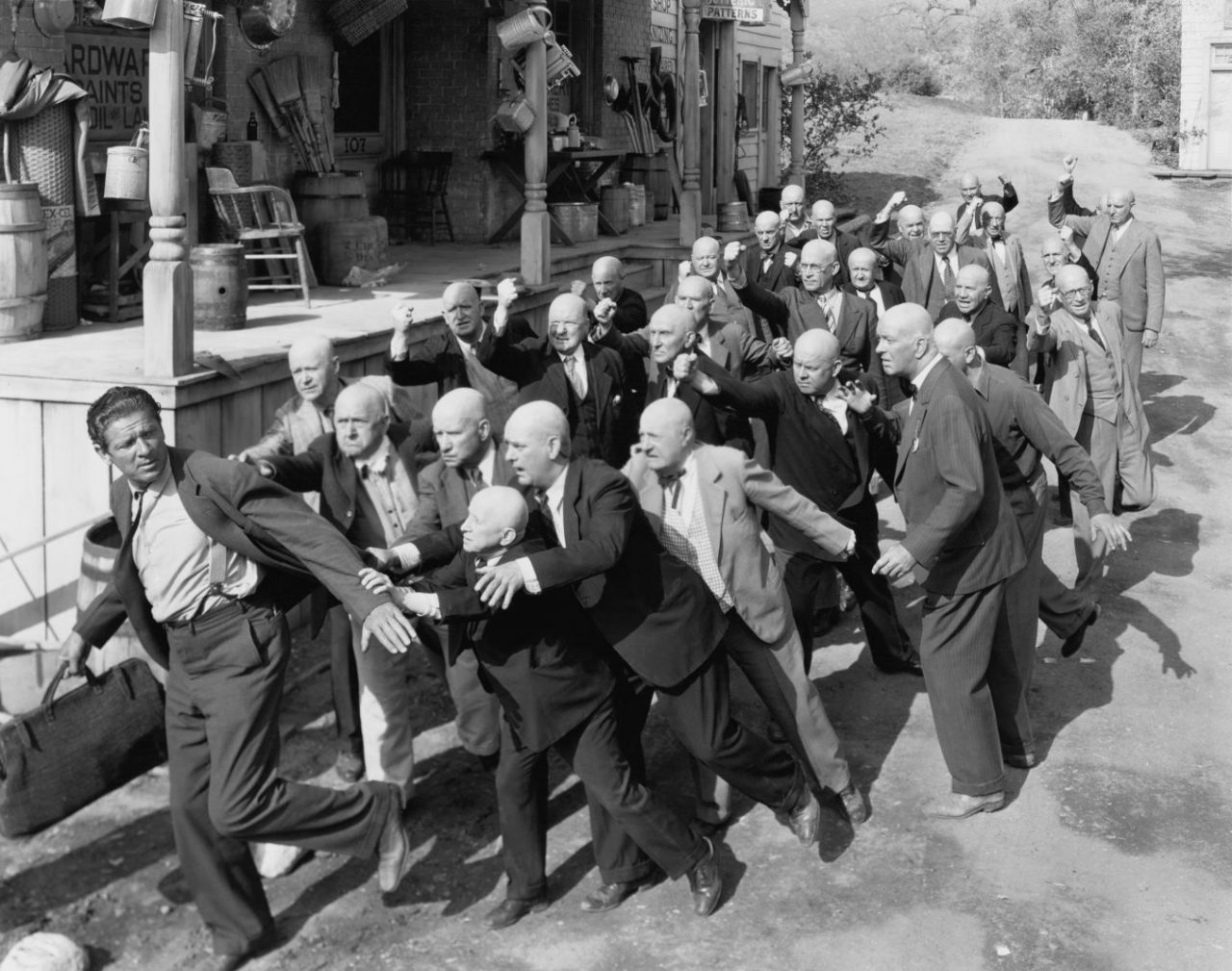
Adverb happily played his part in sentences until we turned on him
Once upon a time, there was a happy place called WordLand, where the various parts of speech would leave their village to frolic in Keyboard Meadow, joyously helping fiction authors tell their stories.
That is, they were happy until Great King Stephen rode up on his mighty steed — On Scribbling — and thrust his lance at the throng, pointing in turn at Verb, Noun, Adjective, Pronoun, Preposition, Conjunction and Interjection.
“What is wrong with you? Why do you form yourselves into sentences with that despicable wretch, the abomination of good StoryTelling?”
The villagers looked from one to another in puzzlement.
They didn’t know whom he was talking about until King Stephen pointed his lance again.
At Adverb.
With the lord of WordLand scowling at him . . .
. . . Adverb felt ashamed but didn’t know why.
“He’s no better to associate with you than those hideous wretches,” King Stephen thundered as he waved a hand toward the dark forest where a dreadful couple looked on mournfully — the infamous Comma Splice and her beau, Dangling Participle.
Shocked by the comparison, villagers murmured to one another while sneaking glances at Adverb.
“You know,” Verb whispered to Proper Noun, “I never really liked Adverb. He’s always trying to invite himself into a sentence, crowding me, acting as if I’m not sufficient on my own.”
“Sometimes I feel the same about Pronoun,” Proper Noun whispered back, “although I can’t do without her because otherwise I’d be exhausted from overwork, not to mention being despised as a showoff.”

You are a stench in my nostrils!
“Silence, muttering minions! I, King Stephen, have spoken, and multitudes of writers will follow my lead. Therefore, the part of speech known as Adverb will henceforth be word-shamed as Poor Adverb for all the telling with which he has infested the art of StoryTelling, which really should have been called StoryShowing.
“Henceforth, Poor Adverb, ye are banished. Go and never darken a story again.”
Confused, Adverb looked piteously at his friends for support, unsure why he had suddenly become one of the degenerates your English teacher warned you about.
But all the other parts of speech turned against Poor Adverb, screaming invective and chasing him from their presence.
Thus, Poor Adverb sorrowfully, wistfully, shamefacedly left his turncoat friends, knowing that King Stephen’s edict would have him erased, whited out and digitally vaporized from short stories, novellas and novels.
Despondent, he stumbled drunkenly through the day and into the night until flopping on a tombstone in a cemetery that had one of the words in its signage misspelled.
Before a new mob gathers . . .
For all the Stephen King fans — and I count myself as one when I think of Misery, The Shawshank Redemption and The Shining — we’re just having some fun with the above tale.
There’s no need to get your bowels in an uproar.
You see, after reading On Writing by Stephen King, I too became an inflamed villager fired with the passion of King disciples who say they “hate” adverbs.
I mean, what else can you do when a master storyteller writes, “I believe the road to hell is paved with adverbs.”
We certainly don’t want to go there.
Taking up my digital pitchfork, I vowed . . .
. . . to madly, mercilessly, brutally, savagely destroy every adverb in my 429-page draft.
I even wished that I could code my computer to delete them with explosive sound effects.
Since I lacked that knowledge, passing gas at occasional lucky moments would suffice.
But wait.
Having been formerly steeped like a dormouse in the teapot of objective journalism, I felt a duty to get the other side of the story.
Fearfully, I googled “in defense of adverbs” — hoping to draw a blank.
Zounds!
You will find a plethora of articles by writers who argue for adverbs. They make cogent points about how adverbs can add nuance and contribute to a better understanding of matters that involve time, place, manner, frequency and degree.
What really startled me is when they pointed out that even naysayers such as Mr. King also use adverbs.
What? Could that be true?
I had to find out.
I peeked with trepidation into some of Mr. King’s works.
Yikes!
Adverbs haunt the first pages of It, Pet Sematary and The Shining (Heeeeeeeere’s Adverb!).
They’re even found in later works such as 11/22/63 and Elevation.
Oh, no! Now I see adverbs in my copy of On Writing.
Oh, the wordmanity!

What one feels when first realizing that Stephen King uses adverbs
Apparently, in my fever pitch to take up a pitchfork, I had forgotten about Mr. King’s comments that he is “another ordinary sinner” in having used plenty of adverbs in his fiction writing and that his inveighing against adverbs is a case of “Do as I say, not as I do.”
Guilty confession: I must admit, of the adverbs that I noticed in Mr. King’s fiction, I quite enjoyed them as a reader.
Frankly, some sentences simply would not have been as meaningful or pleasurable to read without them.
That’s when I thought, what about other writers, those who’ve garnered great praise or just great sales?
I took a look at the opening pages of . . .
. . . A Farewell to Arms by Ernest Hemingway, The Corrections by Jonathan Franzen and American Gods by Neil Gaiman.
All three use adverbs. Obviously, adverbs didn’t stop them from enjoying critical and popular success.
What you see is my pitchfork drooping.
I think the main takeaway from Mr. King’s famous admonition against adverbs is to replace them with detail and description that makes a scene come alive, but to be judicious in that practice so that our writing doesn’t bog down in excessive and even florid verbiage.
I must admit that when staring at my manuscript, I wasn’t comfortable with killing every instance of one of the parts of speech.
So, where does that leave us re adverbs?
Or just me?
Here’s what I decided.
I’m not ready to take a flamethrower approach to adverbs.
I’ll evaluate each on its merit.
If an adverb adds nothing of value, out it goes.
If I can make a scene better by replacing an adverb with a vivid description of what is taking place, fine.
But if an adverb helps with nuance or economy of presentation in a scene that should not be longer, I’ll tap Poor Adverb on the shoulder and say, “Friend, you can stay.”
QUESTION: Where do you stand re adverbs in your writing?
I really like adverbs! To be honest, I never really gave it a thought. I just write and if one shows up, that’s fine with me!
Jessica, you are a friend indeed to a friend in need, like Poor Adverb.
Phil, you and I seem to be bucking the trends at the moment. I refuse to discriminate against words ending in “ly” and to participate in word shaming. There is room for all the flowers in the garden.
Naomi, verily, let them blossom!
Great fun! I’m not ready to give up adverbs either, especially when the ‘strong verb’ sounds unnatural. Thanks for poking fun at this frustrating new writing rule.
I’m with you, Cathy. Rather than accepting it on blind faith, I regard it as a tool, not a rule.
Hilariously on point. I think the purpose of warning against adverbs is to help us all avoid sloppy or lazy writing, especially in attributions. And for the lazy among us, it’s just easier to pronounce an adverb jihad rather than evaluate them case by case. But since I typically evaluate every stinkin word case by case when editing, what’s a few extra adverbs among friends?
Indeed, Lissa. Poor Adverb is deliriously grateful for those who befriend him.
The adverb “to be or not be” is the main question…
BUT this article brightened my day with the joy of reading humor at its Best!
Chuck, you have brightened my day . . . and Poor Adverb’s!
If we never used adverbs, I’m sure our writing would become similar to a black and white painting–all the color would be drained out. That goes for adjectives, too. But then, too many can cause the reader (and maybe even the author) to feel bloated as though they had overeaten at dinner, and want to find an antidote. Everything in moderation, as the saying goes. As for me, I’m keeping my adverbs when they add to the story. I don’t mind axing the superfluous ones. And I’ve often been told that I am really good at description. So I must be on the right track.
I think you are on the right track, Diane — everything in moderation instead of total elimination.
I think this is the most hilarious thing I’ve read in ages! You make a solid point with it too. I’ve never had a knee-jerk reaction against the -ly words. Lazy writing is lazy writing, and excessive use of any type of word marks it out.
I will be adopting the phrase ‘oh the wordmanity!’ for my beta-reading XD
Adopt away, Melanie!
What a fun post! I’m ambigous when it comes to adverbs. If I can remove them I will, but I’m not going to embark on a crusade to completely eradicate them from my writing.
I seem to hear more adverbs breathing sighs of relief.
Fantastic read!
Thank you, Ramnik!
Great post. You made me smile and I am glad adverbs are not to be cast into room 101.
Your comment made me smile, Deborah.
I think you’ve hit the nail on the head. This, like all other writing rules, needs to be considered sensibly and not immovably adhered to. I use adverbs. Sue me quickly.
Donna, I like that phrase: “not immovably adhered to.”
Enjoyed this, especially the pitchfork drooping. Did it droop swiftly, gently, or (insert adverb of choice here)? No-one should be hidebound, and rules are made to be broken – but intelligently. What I thank Stephen King for is the opportunity he gave so many bloggers, including myself, to have a tilt at him. It was either that or disappear tearily under the duvet.
And a good tilt was had by all!